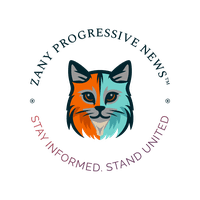Recently updated on August 5th, 2024 at 11:58 pm
The article about Susanna Gibson, a Democrat running in a crucial legislative district, bore the telltale signs of an opposition research dump.
The Washington Post had a salacious tip on its hands, graciously gifted to the newspaper by an unnamed Republican operative ahead of a crucial Virginia legislative election. The paper also had a problem: The activity the tip exposed was between consenting adults. But it was also rather sensational — sex and voyeurism on the internet — so there had to be a way to get it into print.
The map through that thicket was also provided, it appears, by the same operative. The paper framed the story around an allegation that was elegant if a little absurd: Democratic candidate Susanna Gibson, it was alleged, had violated the terms of service of the sex site Chaturbate by soliciting monetary tips for performing specific acts with her husband. According to a snippet of the terms of service quoted by the Post, Chaturbate’s policy states that “requesting or demanding specific acts for tips may result in a ban from the Platform for all parties involved.”
So it was that six of the resulting article’s first 10 paragraphs zeroed in on the claim that Chaturbate’s terms of service don’t allow performers to request tips for specific sex acts, followed by multiple examples of Gibson having done so. The message to Post readers was clear: What consenting adults do among themselves is their business, but if a candidate can’t be trusted with Chaturbate’s terms of service, how can she be trusted with public office?

The outcome of her race, meanwhile, could decide abortion policy for the state’s 8.7 million residents.
Gibson responded firmly to the article, calling it “an illegal invasion” of her privacy, “designed to humiliate” her and her family. The article, which was published on September 11, continues to reverberate within Virginia Democratic circles, with The Associated Press reporting last week that some Democrats have dismissed it as a distraction ahead of the November election, “while stopping short of fully championing her continued campaign.” The discourse, however, has neglected a crucial point: The Post’s way into the story — the claim that Gibson broke the site’s rules — was completely wrong. (The Washington Post and reporter Laura Vozzella did not respond to requests for comment.)
The write-up bore the signs of an opposition research dump. When oppo researchers of either party reach out to journalists with a pitch, the research is often contained in a slim packet, with relevant quotes from publicly available articles coupled with financial documents or other papers that form the building blocks of an article.
The telltale sign that such a packet was provided to the Post comes in the article’s description of the moments where Gibson discusses tips. For one, it’s difficult to believe a reporter watched hours of video to find those clips. For another, the Post’s interpretation of the rules appears based on reading a clipped version of the website’s policies — the type that might be included in an opposition research file.








